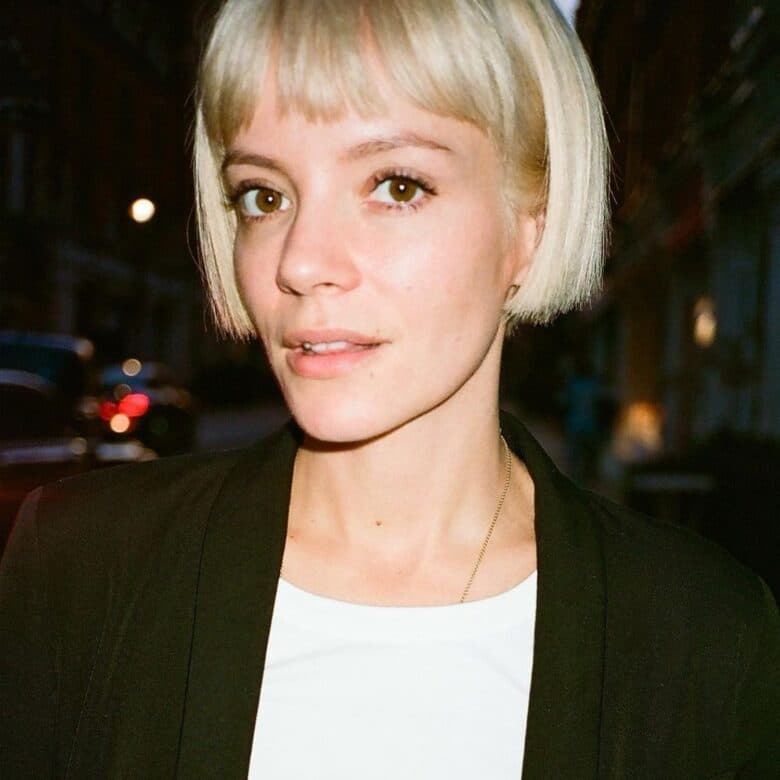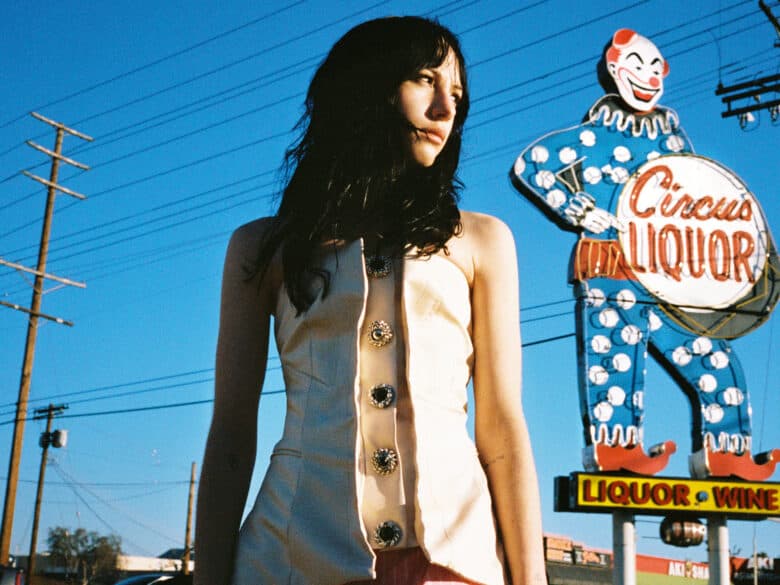Alexander 23 is the full package
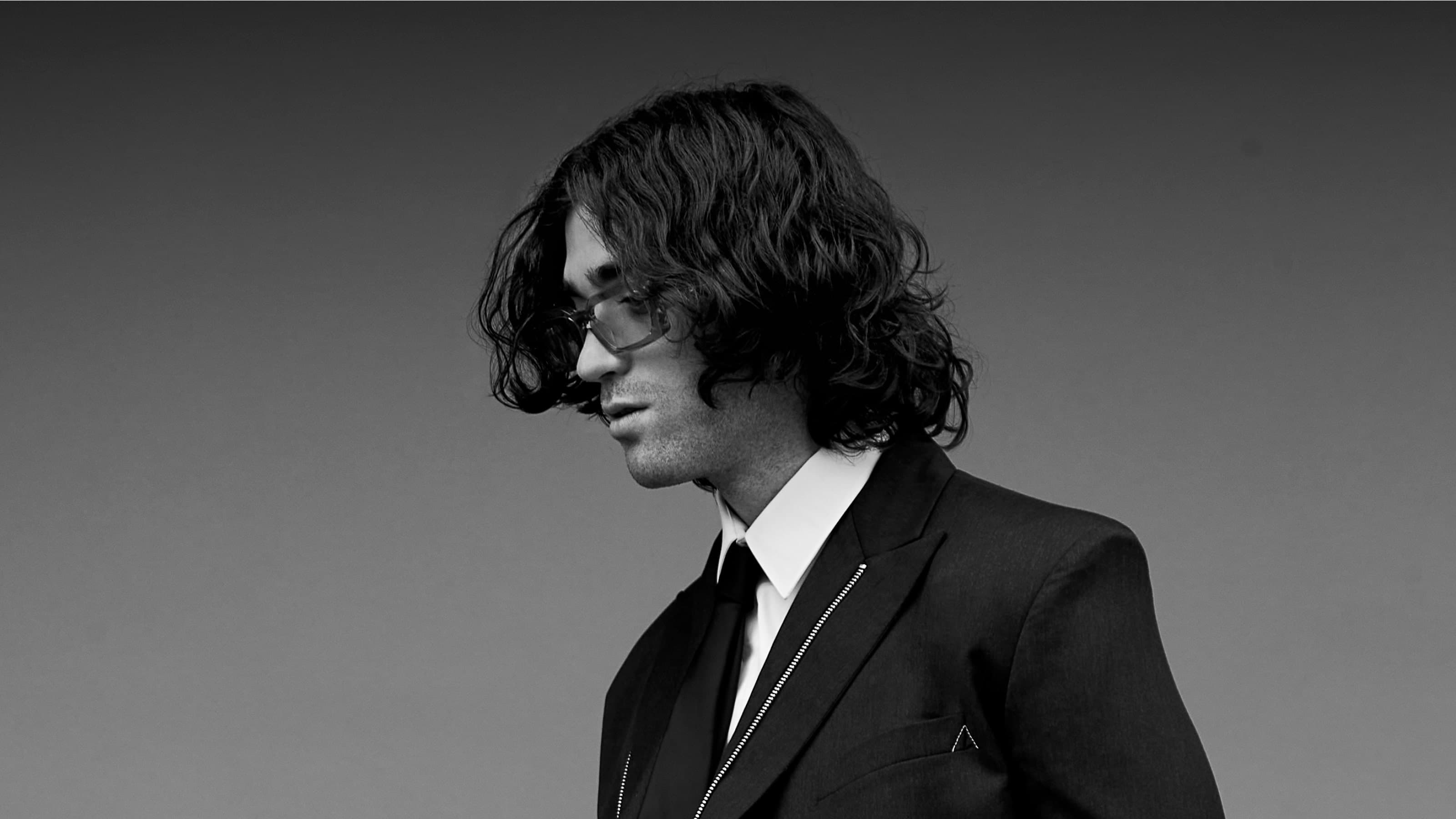
The HUNGER team meets Alexander 23 on his third day into an intense press run in London. Despite being jetlagged and at his second shoot in two days, he’s in great spirits, bounding around and inputting on styling choices. It has, after all, been a belter of a year for the Grammy-nominated musician, producer and songwriter, and it’s only up from here.
Music wasn’t always on the cards for the 27-year-old, who was born Alexander Glantz. He added the “23” to his moniker to reflect his birthdate, his love for Micheal Jordan, and to mark the age when he started officially making music. Until then, though, Alexander was studying engineering at an Ivy League college, the University of Pennsylvania, before dropping out a year later to pursue his dreams. It must have been a difficult decision, I say, to leave such a prestigious university and a secure career path. “I thought I was going to work on electric vehicles for space and I was passionate about it!” he exclaims. Despite having been making music “in one way or another” since he was a child, it was only at UPenn that Alexander joined a band, which attracted label interest, and from then on, nothing was ever the same: “I’ve been obsessed with trying to make it work every day since.”
In his short time in the industry, Alexander has made waves in different lanes. He co-produced Olivia Rodrigo’s smash hit, ‘good 4 u’, and now counts her amongst his close friends. Speaking about the singer, he maintains that what we’ve seen so far is just “a drop in the ocean of what she’ll accomplish”. The same certainly applies to Alexander. In the last few years, he has collaborated with Selena Gomez and John Mayer, as well as garnered hundreds of millions of streams on Spotify. His second EP, Oh No, Not Again!, was released last year, and further consolidated his brand of emotive songwriting, with tracks like ‘IDK you yet’, which place him firmly within the canon of love and heartbreak, to the groovier ‘She Loves Me,” where Mayer’s influence is palpable. But Alexander doesn’t want to pigeonhole himself within the genre of “sad pop”. “I’m terrified of putting labels on myself,” he tells me. “What’s funny is that I never think of myself as a sad person. I gravitate towards writing those songs because it’s a place to put those feelings. Songs are like emotional money, and this is the best way I know how to store my sad feelings.”
Ahead of the release of his debut album, Aftershock, which will drop on July 15, Alexander shared a gutwrenching new single, titled ‘The Hardest Part’. In it, he speaks movingly about the recent death of a friend, and how it has affected the community back in his native Chicago. It’s yet another example of his range and emotional maturity, which we will no doubt see develop and evolve on Aftershock. Here we speak to HUNGER’s latest digital cover star about songwriting, his thoughts on social media, and more…
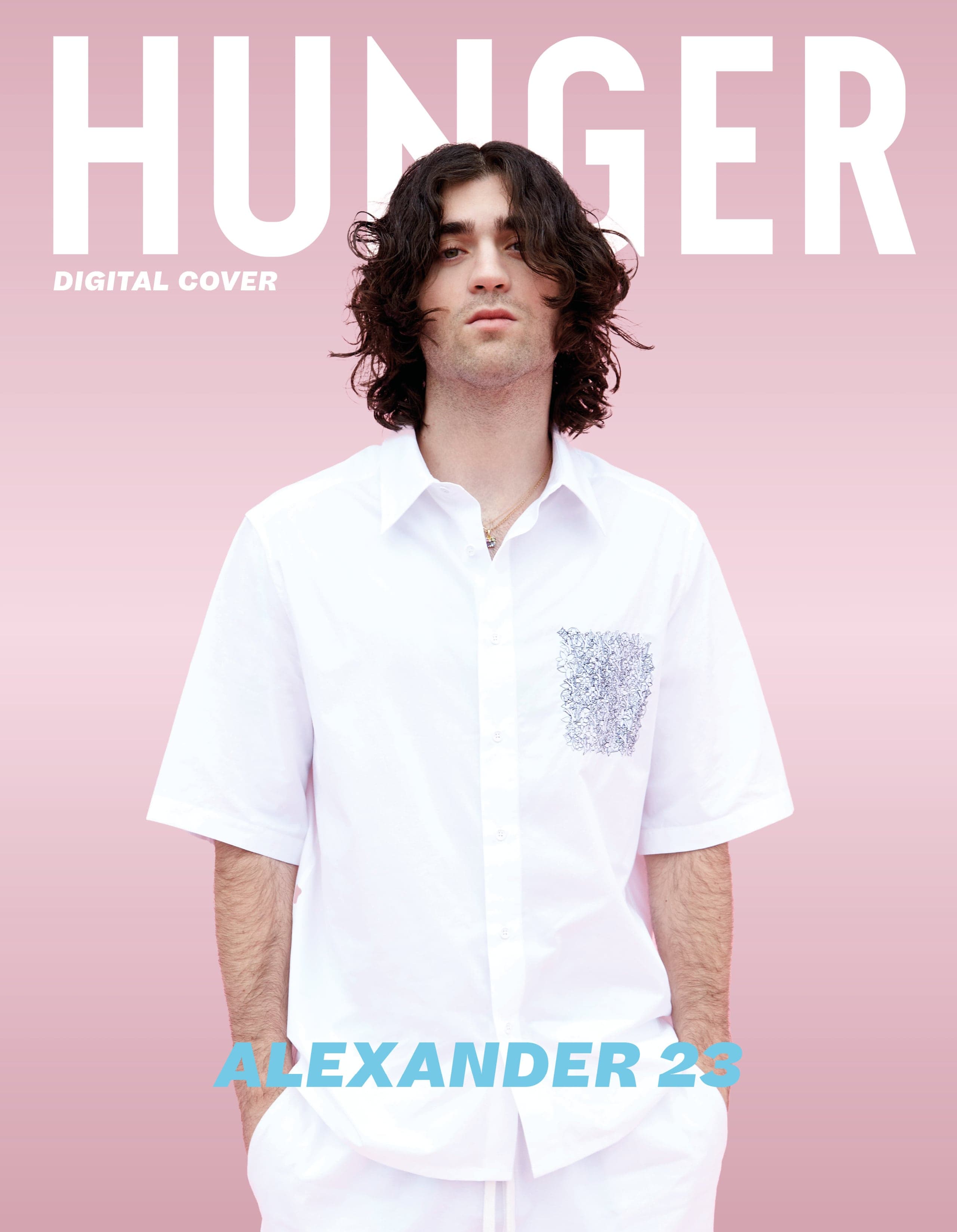
Your latest single, ‘The Hardest Part’ delves into some heavy themes surrounding grief. Can you tell me some more about it?
It was certainly a hard song to write. My two initial reactions after writing it were oh my god, I think this is really amazing, and two, I don’t ever want to put this out there. With this one, because there was so much of everyone else’s grief wrapped up in it, it was hard for me to imagine its place in the world. But knowing this person since I was a kid, and seeing how my mom and my close friends were affected, gave me the courage and confidence that the song could do something positive. So I think it was important to share it rather than keep it private.
Definitely. Having experienced grief in my own life, I think it’s so important to speak about the person and share memories of them. It’s a beautiful thing.
Thank you. It also made me think about what I’ve turned to music for in the past, and it’s to feel heard, understood and emotionally safe. So yeah, I’m really happy it’s out, and it felt like the right time for me to release it.
As you mentioned, you don’t shy away from delving into your personal life when it comes to songwriting. Is that something that’s quite cathartic for you?
I’m not someone that likes writing just for sport, at least when it comes to my own music. I mean, I love delving into other people’s processes and helping them find their own voice, but when it comes to my songs, I’m never writing just to write. I pretty much exclusively write when I feel there’s something that I need to work out in my brain. The difference between me and a lot of my friends is that I’m never writing in the middle of trauma, that’s not my immediate emotional response. For me writing is always the last step in the process, it’s how I close the chapter on that specific book. So once I finish the song, the hope is that I’ve processed that emotion and am ready to move on. But with ‘The Hardest Part’, it’s one of those specific cases where the point is that there’s no answer and no closing chapter, it’s something that we’re going to be reminded of forever. You have to learn to cohabitate with that feeling rather than trying to push it down.
Of course. And changing tack, you’re also known for speaking very candidly about heartbreak and love — I’m thinking particularly of ‘Hate Me If It Helps’. Do you ever have to be careful about overstepping the line, and have you ever experienced any backlash?
It’s something that I’m constantly thinking about and re-evaluating. Regret isn’t the right word, but I’m always questioning things I’ve said and written in the past. But as a songwriter, I think that a track has to be scary to share or else it isn’t worth sharing, you know? We have enough songs and media about mundane feelings. I want to explore things that are uncomfortable, I think that’s my job as a songwriter. It’s never, ever at the immediate expense of someone though. I’m not going to give away personal information or badmouth them online. I’m trying to be as respectful as possible, even with this song, I’m not going to tell people who it’s about, if you’re from my hometown, you can probably work it out, but I’m here to support, not to interrupt the peace.
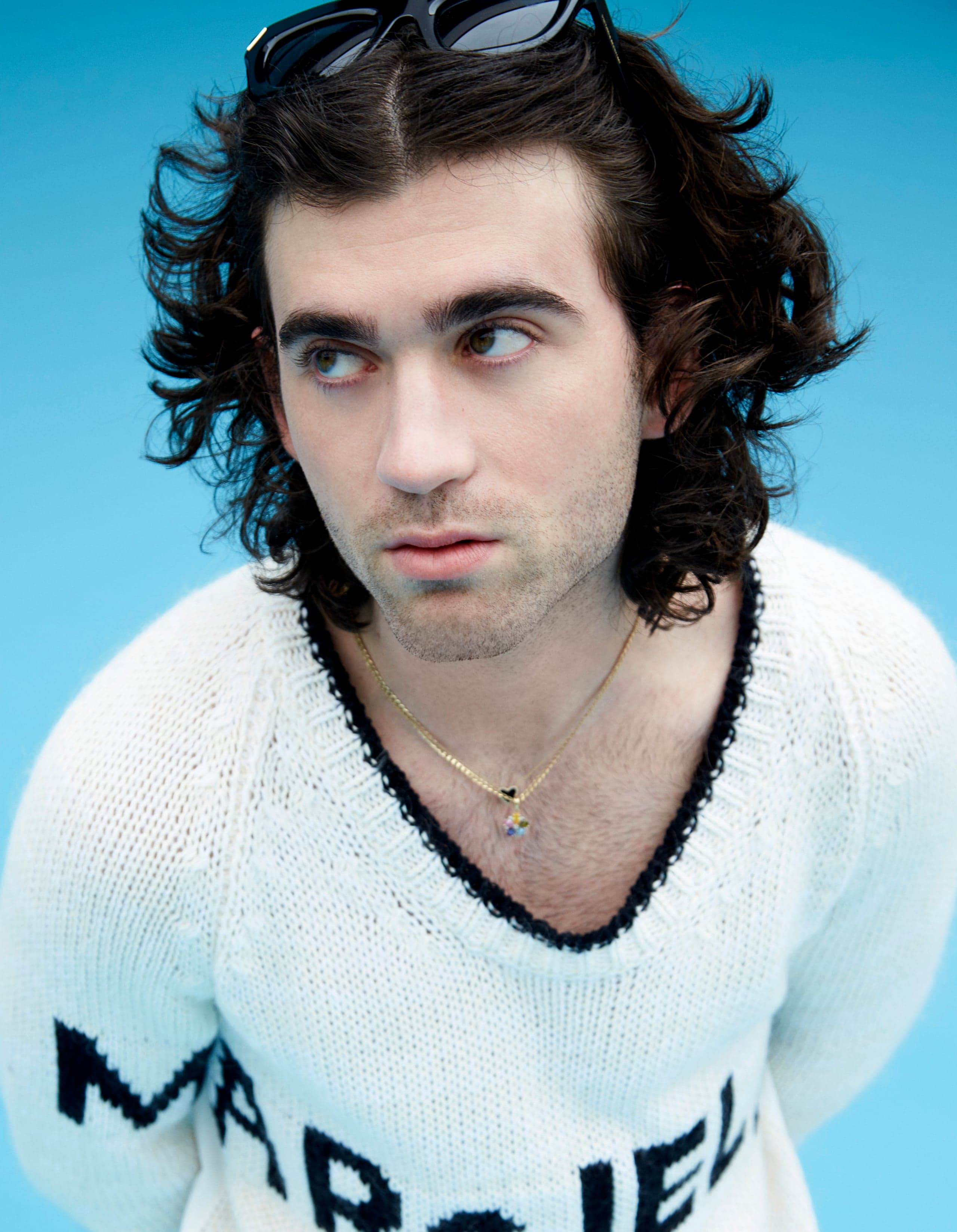
That’s very commendable. And then, you’re not just a songwriter, you’re also a producer, a musician… the list goes on. How does having all these different skill sets inform and influence your own musical output?
It simplifies and complicates things. It can open up the door for infinite possibilities, which is something I struggle with. Something that I really was looking for was working with someone like Dan Nigro, as I did with ‘The Hardest Part’. When you’re producing a song like this, it’s so tempting to go in many different directions, but he was able to approach the track holistically and think about what’s best for the song as a whole, not just the lyrical aspect.
It’s about knowing when the right time is to put on a new hat, I guess…
Yeah, and it’s easier, for me at least, to put on those different hats when I’m not the person that’s gonna have to sing the song over and over again. It was really nice to have someone I trust and who is a really talented producer and friend to be in the room to guide the ship.
Of course! It’s also still quite rare to see men be so open and vulnerable and speak about stuff like grief and heartbreak. Have you ever felt the need to dial it down somewhat?
I don’t think so. I feel pretty empowered by my circle to continue speaking about stuff. I think if you knew me, you’d understand that I’m not extremely emotional, I’m actually emotionally buttoned up in a lot of ways. So I think I rely on this part of my life to get those feelings out. This is a very ironic time to say this, but I don’t really offer too much information about myself unless it’s prompted or sometimes begged for. You can ask some of my ex-girlfriends about that. So I need this to work through and explore things that I don’t think I’d let myself do outside of songwriting.
On that note, you have been associated with a genre of music called ‘sad pop’ — what do you think of that?
I’m terrified of putting labels on myself because then I feel like I’m susceptible to it becoming a self-fulfilling prophecy. What’s funny is that I never think of myself as a sad person. What I was saying before is that I think I gravitate towards writing sad songs because it’s a place to put those feelings. And when I’m happy, my first instinct is to go be happy on the beach, not hole up in the studio and write about it. Songs are like emotional money, they store a value of sorts, and this is the best way I know how to store my sad feelings. I’d like to write more happy songs in the future, but I’m still figuring out what the most authentic way to do that is for me.
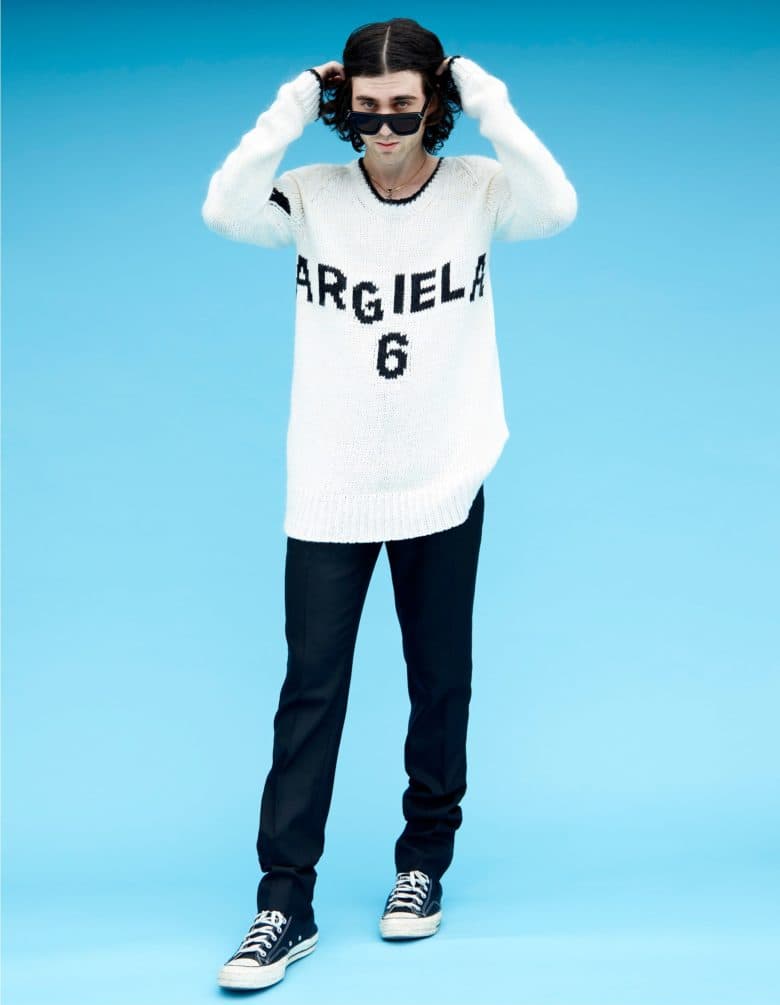
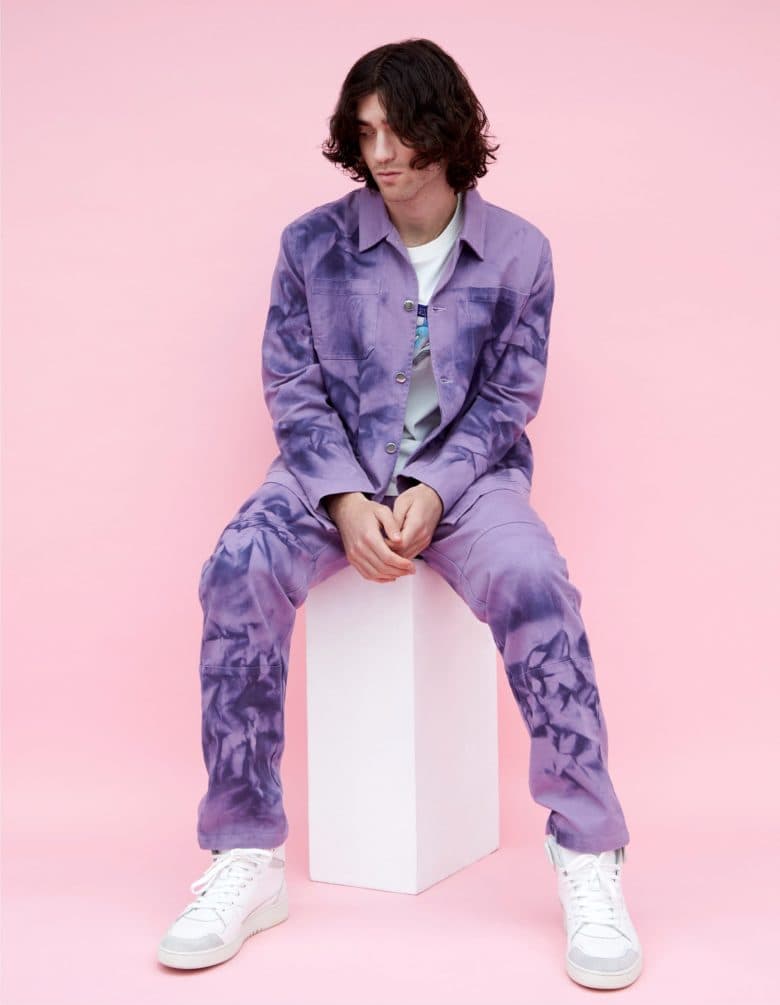
Definitely. I find it interesting when artists are just given labels like that, it just never feels wise to pigeonhole someone when they’re so early into their career.
Totally. And I think nowadays, whether we like it or not, we’re judged on more than just the music. If they followed me as a person, they’d see the whole picture a bit more. But I’d never get mad at someone for categorising me like that, I understand why they’d put me there.
The other thing about your music is that it’s been dubbed as super relatable. Is relatability one of your aims?
I love that people feel it’s relatable. But I’m never writing music with that being the intention, I’m never really thinking about anyone else. At least for me, I feel like that’s a trap, I would hate to reverse engineer relatability. But have found that there’s a really special paradox between being specific and ending on general. And the more I’m writing about something that is super unique to me, the more it ends up being not unique to me at all. I think that’s because while our individual experiences may be unique, the feelings they evoke are most definitely not. They’re extremely universal. When it comes to the songs I love the most, I can’t relate detail by detail, but I can relate to the feeling.
And then obviously you co-produced Olivia Rodrigo’s smash hit, ‘good 4 you’. What was working with her like?
It was amazing. When it comes to Olivia, I think people haven’t fully realised how good she is. It’s kind of ironic because she’s one of the biggest artists in the world. But she’s just like… so good. This is a drop in the ocean of what she’ll accomplish. I don’t say that to put any pressure on her, I know because we’re friends and I’ve been with her in the studio enough times to see what she’s capable of. This sounds corny, but having success is awesome, it’s validating and cool, but it’s just so much better when you’re doing it with people that you’re friends with and actually care about. It compounds it.
You both specialise in heartbreak and love to a certain extent. Have you learnt anything about love from Olivia and vice versa?
I don’t know if she’s learnt anything from me [laughs]. But yeah, she once said something really interesting. I was thinking about texting an ex-girlfriend after we’d broken up, it was nothing bad, I just wanted to let her know that she was special to me and I cared about her. I asked Olivia her opinion and she said that I needed to decide whether I was doing it for her or if there was any part of me that was doing it for myself. She was like if you can confidently 100% say that it’s for her, then you should do it, and I couldn’t say 100%! I ended up not doing it, and that was the right decision. It allowed her and I to have a bit more space to heal. That really stuck with me.
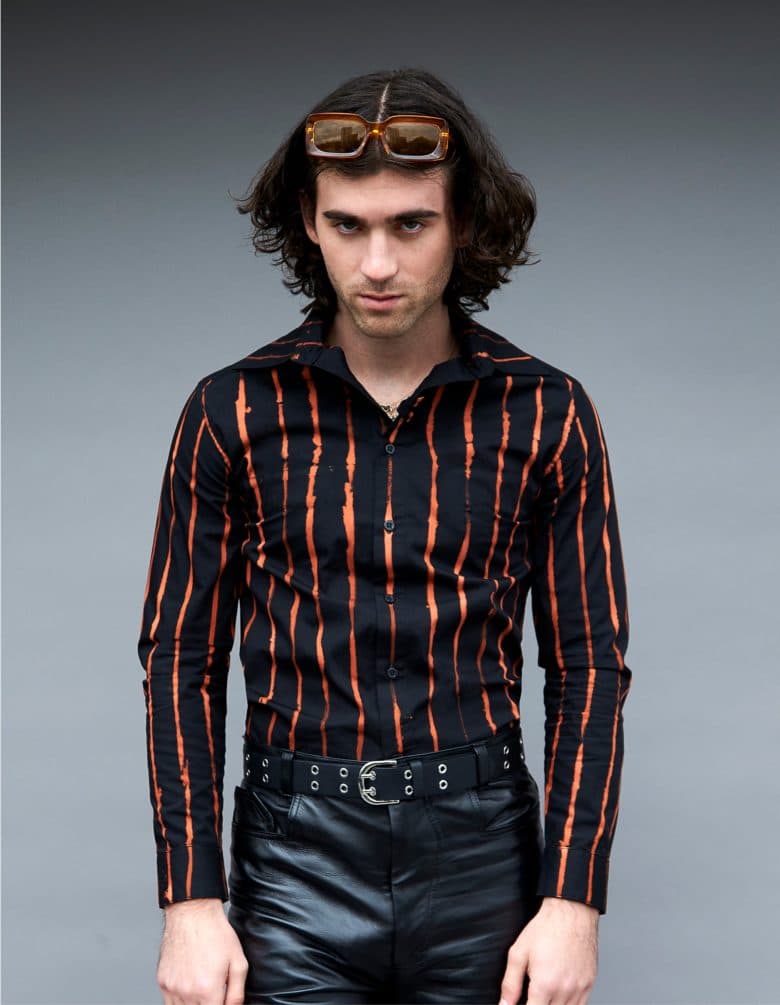
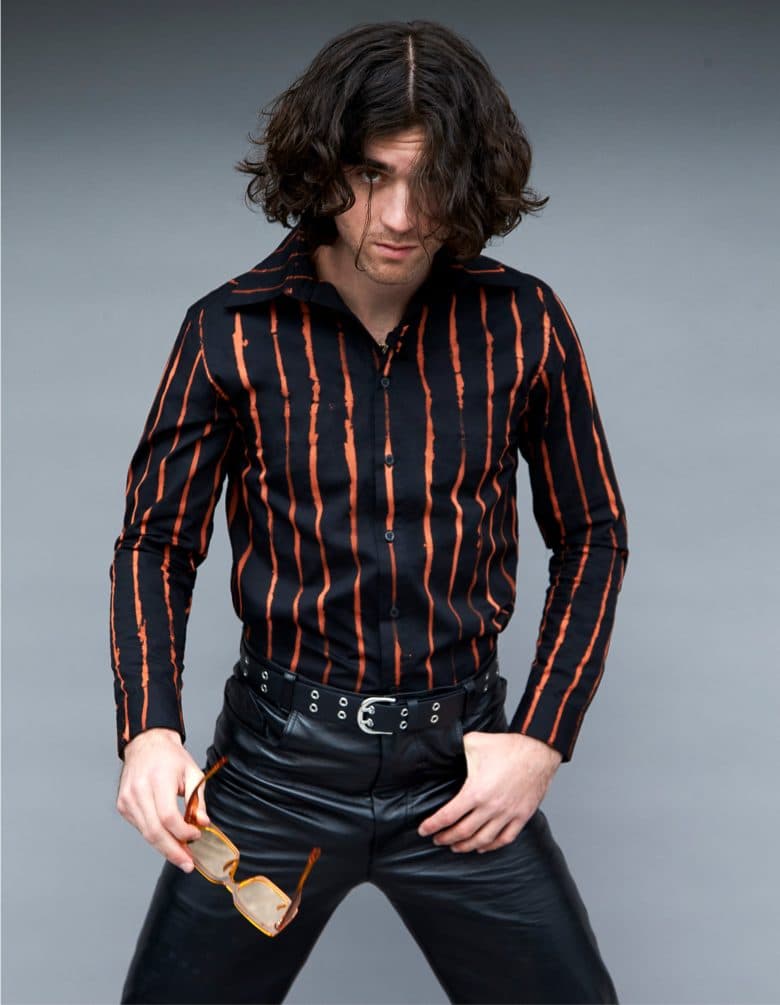
What would you say has been your most honest song to date and why?
I think it’s ‘Hate Me If It Helps’, which I actually wrote with Olivia and Dan. It was the first song where I allowed myself to be angry… I don’t think that’s the main energy of the track, but it was the first time that I allowed myself to not be the good guy or the self-aware guy. I gave myself the space to be hurt about something and it pushed me in a good way.
You’ve also garnered a lot of noise through platforms like TikTok — what do you think it’s doing for artists right now?
It’s good and bad… but I definitely think it’s getting worse. I would be lying if I said that I didn’t hate it most days. I’ve definitely struggled with how to best promote my songs, but when it comes to all the things that seem to be working on TikTok, they seem disingenuous with what I’m trying to do. I don’t want to increase the bait, you know? I don’t want to bombard people with an immediate emotional response… I’m grateful for this platform and for what it’s done for me, but there are bad bits about it. I think it’s changing the way people write songs. When you’re trying to get someone’s attention in five seconds you’re not going to be approaching songwriting in the same way as you would otherwise. A song should feel like a journey and take some patience. I think patience and payoff go hand in hand, and without one, you can’t really have the other, so I struggle sometimes with what I see on TikTok. Like I get why this is good for 30 seconds, but it’s not what I grew to love about the process. It’s a hard balance, but overall it’s clearly an extremely powerful tool.
Then to go back, you dropped out of an Ivy League University to pursue music. Was music always your end goal?
I didn’t know that I was going to be a musician. Of course, I’ve been writing stuff since I was nine years old, so I’ve always made music. It’s a huge part of my life and was extremely important to me. But I went to school for mechanical engineering. I thought I was going to work on electric vehicles for space and I was passionate about it! Music just didn’t feel realistic. I didn’t know anyone who made music, it was just something that was fun to do with friends. When I was in college, I ended up joining a band, and then we got label interest, it was crazy. But it’s opened up the idea of music actually being a sustainable job, and so I’ve been obsessed with trying to make it work every day since.
I know you have a new album on the cards. Can you tell me anything about it?
You asked me what my most honest song is, and I think this new release is full of the most honest songs I’ve ever written — and some of them are vulnerable in very scary ways. I’m terrified, but I worked really fucking hard. I’m really proud of it and I think it’s fucking good. I’m excited for people to hear it.
